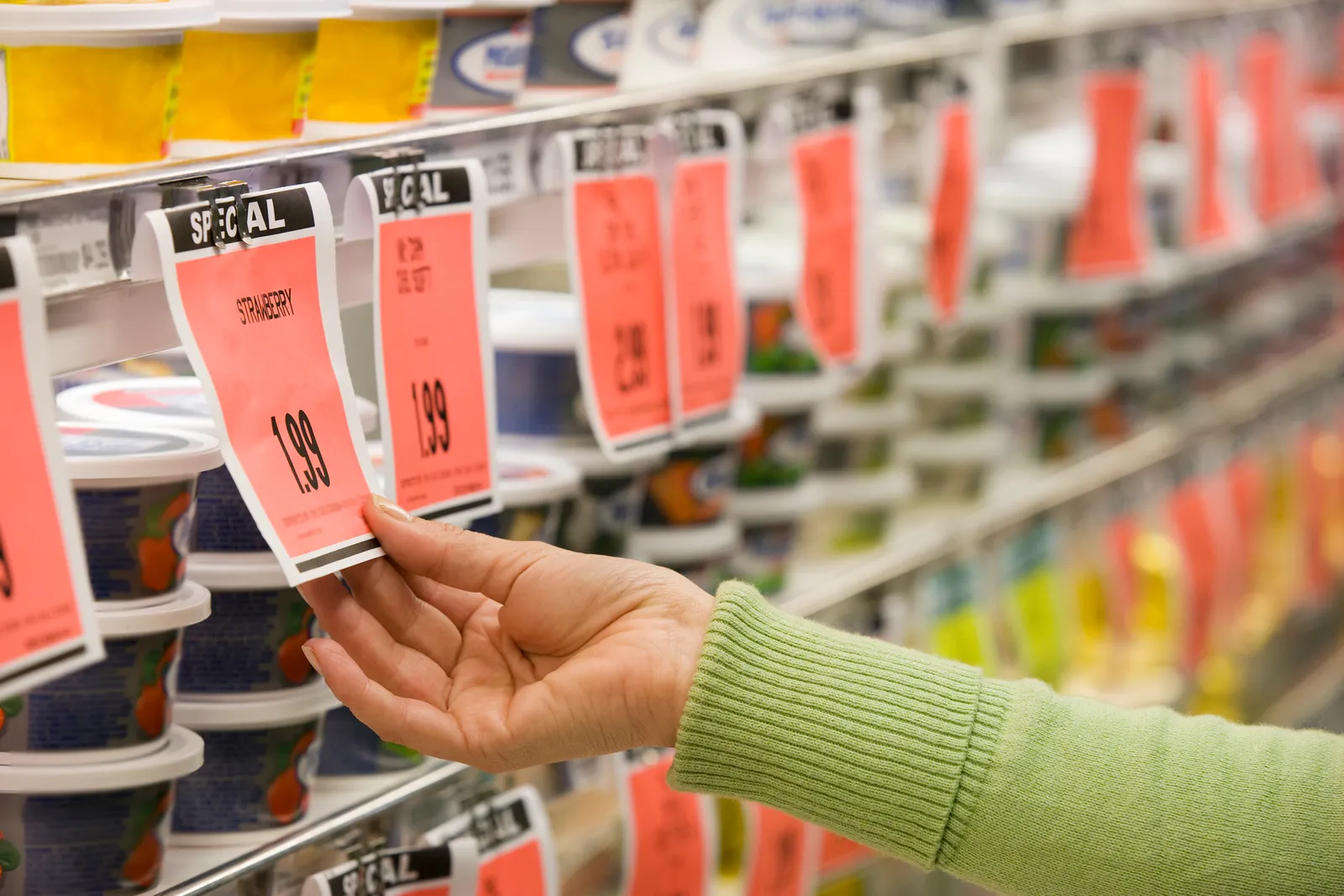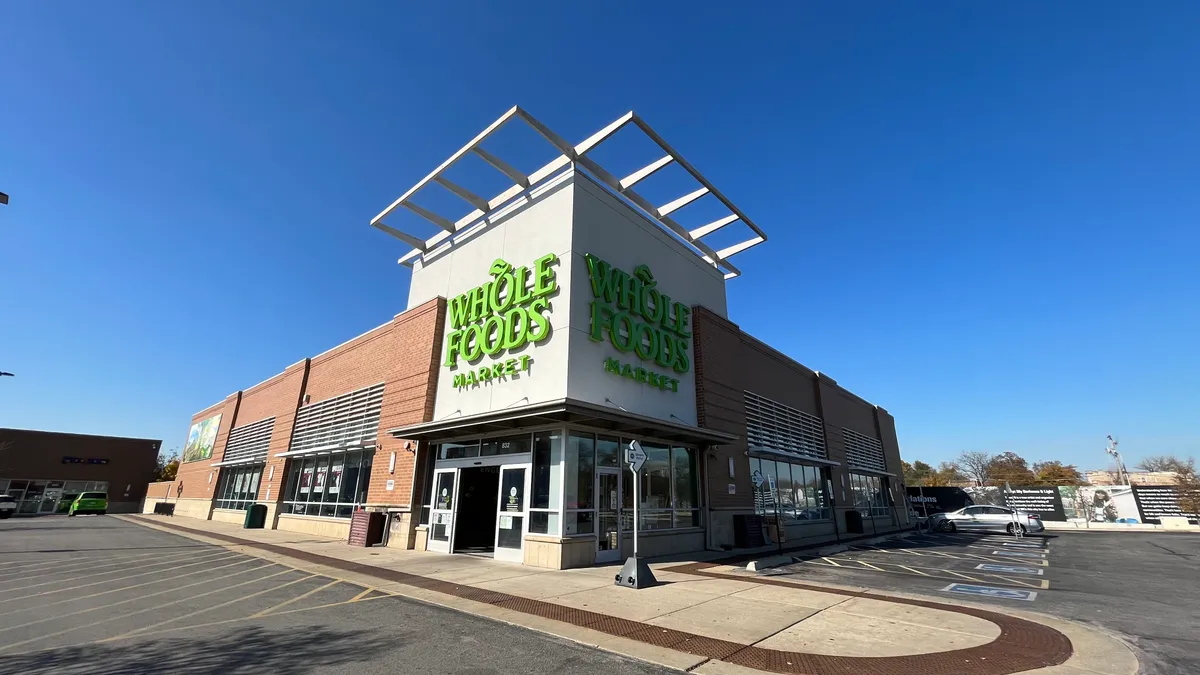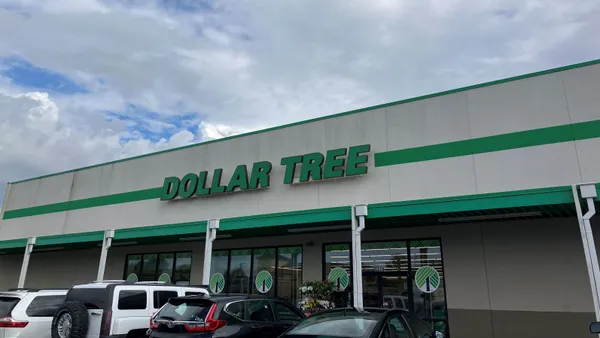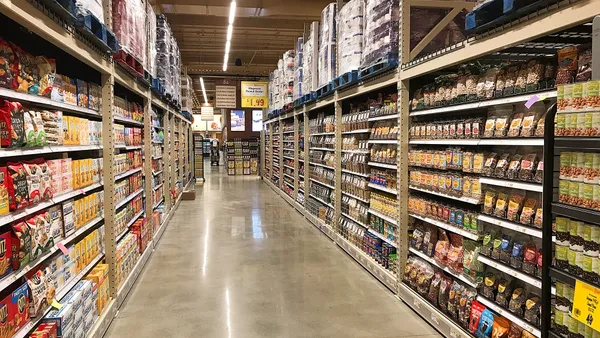The Friday Checkout is a weekly column providing more insight on the news, rounding up the announcements you may have missed and sharing what’s to come.
In looking to address food insecurity, some companies and organizations, like Instacart, have touted that expanded access to affordable e-commerce services can help residents. But a new report from the Brookings Institution aims to flesh out the “deeper and more fundamental problem” of devaluation and disinvestment fueling grocery disparities.
Across 10 metro areas analyzed, Brookings found that Black-majority block groups across four income quartiles had a lower chance of being within one mile of a premium grocery store than block groups in each of those metro areas overall. Seven of the metro areas studied had no premium grocery stores within a mile of Black-majority, high-income neighborhoods.
Meanwhile, Brookings found an overall trend of more dollar stores in Black-majority neighborhoods, but noted that the patterns in each metro area varied depending on factors like income. Areas with dollar stores tend to have a cluster of them than just one, which makes it harder for grocery stores and other small businesses to compete, per the report, which was co-authored by Research Assistant DW Rowlands, Senior Research Associate Manann Donoghoe and Senior Fellow Andre M. Perry.
Brookings did not shy away from exploring how dollar stores can harm communities: “While dollar stores can fill a need in low-income neighborhoods, they are often regarded as predatory businesses that harm communities more than they benefit them, due to very low wages, displacing other grocery options while failing to sell fresh food, store design that increases the rate of armed robberies, and OSHA and FDA violations that put customers and employees at risk.”
The report, which presumed that store type can signal economic value in a specific area, said that the prevalence of dollar stores and shortage of premium grocery stores in Black-majority neighborhoods tie into a wider problem of devaluation and underinvestment in Black communities.
People in Englewood, a predominantly Black and lower-income neighborhood in Chicago, have made similar claims in the wake of Whole Foods Market’s controversial exit last fall from the community and subsequent plans to replace the Amazon-owned premium grocer with a Save A Lot.
"When people think of Save A Lot, they cringe. So when that banner went up, people were up in arms. I cannot believe we would go from one extreme to the next," Asiaha Butler with the Residents Association of Greater Englewood told NBC Chicago.
To break out of the larger problem of devaluation and underinvestment, grocers will likely need to unite with local communities and developers to not just help their business succeed, but to also spur further investment. Locally owned stores may be a key answer, per Brookings, which noted that two local chains, Yes! Organics Market and Mom’s Organic Market in Washington, D.C., have a smaller racial disparity.
“[It may] be evidence that locally owned stores are less likely to undervalue Black neighborhoods than national chains with less familiarity with the areas where they operate,” the report said.
In case you missed it
Albertsons links online health tool with Apple Watch
Albertsons said Thursday it is working with Apple to allow shoppers enrolled in the grocer’s newly launched Sincerely Health program who have an Apple Watch to earn points redeemable for grocery purchases for meeting their daily activity goals with the device.

Sincerely Health participants who opt to share their Apple Watch activity data with the platform will receive up to 75 points per day for closing the Move, Exercise and Stand Activity rings, while shoppers who have an iPhone but don’t have an Apple Watch can earn up to 25 points per day for closing the Move ring using the Fitness app.
Women winemakers to visit Save Mart and Lucky stores
Women vintners at a range of California wine brands will appear at tastings at select grocery stores run by The Save Mart Companies, the grocer announced Thursday. The winemakers, who represent brands including Apothic, Chandon, Joel Gott, Oak Ridge and Petaluma, will appear at numerous Save Mart and Lucky locations in California's San Francisco Bay Area and Central Valley regions from April 14 to April 23 as part of the retailer’s “Women in Wine” series.
Cub Foods workers ratify contract
Employees for the Minnesota grocery chain have approved a two-year contract, avoiding a strike that was set to start last Friday, according to a Tuesday announcement from United Food and Commercial Workers (UFCW) Local 663, which represents the workers. The deal, which the union struck with Cub Foods earlier this month, includes raises that average between $2.50 and $3.50 per hour.

Number of the week: 8.4%
That’s the annual rate of grocery inflation the U.S. economy recorded in March, continuing a string of declines in the key metric that began last year following a historic run-up, the federal government announced this week. The 8.4% level of food-at-home inflation last month represents the first time grocery prices rose more slowly than restaurant prices on an annual basis since mid-2021, CNBC noted.
Impulse Finds
Did you still believe you need a car or even a cart to carry all your groceries home? Think again. Earlier this week, this individual went viral on TikTok and is now all over Twitter for strapping groceries to a specially made vest and belt and then riding away on an electric scooter, carrying roughly a dozen grocery bags as well as a watermelon.
Man picks up Groceries on Scooter ????! pic.twitter.com/puuu4geChZ
— Levandov (@blabla112345) April 10, 2023










